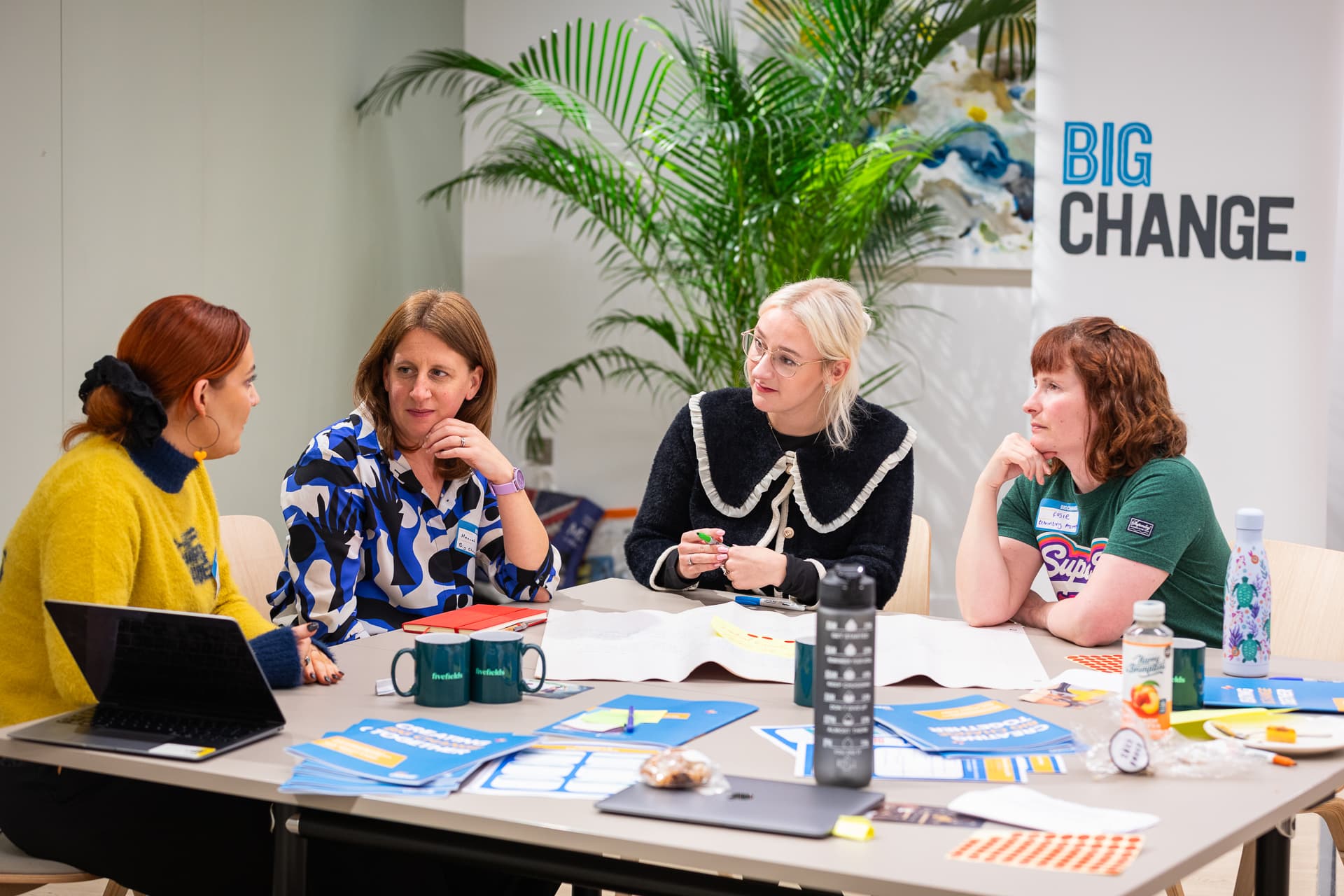
Redefining Success for GCSE and A-Level Students
As thousands of young students received their A-level results with several others anxiously waiting for their GCSE scores, Big Change caught up with Noor and Bervelyn, to ask what advice they would have for their fellow students. The two were part of the Big Ed Conversation Project Council, which played a key role in shaping conversations about education across England.
Noor: I understand the importance of good exam grades but they shouldn’t come at the cost of your wellbeing. Low grades can be damaging to our confidence. We spend hours preparing for exams and if we don’t get the grades we’re aiming for it can seem like all the effort was a waste but that’s not necessarily true. You can take one, two, or even ten wrong turns on a journey but it doesn’t mean you can’t make it to your destination.
Bervelyn: Don’t define yourself by your exam grades, instead see them as a way to help you chart your progress and potential. They are just one way you can aim high, be ambitious, and break the glass ceiling to achieve your dreams.
“We spend hours preparing for exams and if we don’t get the grades we’re aiming for it can seem like all the effort was a waste but that’s not necessarily true. You can take one, two or even ten wrong turns on a journey but it doesn’t mean you can’t make it to your destination” — Noor
Do you believe exams accurately reflect a student’s true ability?
Noor: The nature of exams is flawed because they require students to cram years and years of learning into a few hours and they don’t reflect real-world working conditions. Despite that, it’s a good idea to give your best in an exam.
Bervelyn: Exams can be limiting. This is because a person’s ability cannot be fully assessed in just two or three hours. What if someone is ill at the time? Should they still be assessed within the same parameters? During the time of my A-level exams, I was dealing with a family bereavement. Focusing on equations and complex theories felt nearly impossible. It’s essential to remember that exams are a momentary snapshot, not a definitive measure of one’s overall worth. We’re all different and have different strengths. Some of us may excel in presentations or collaborative projects but struggle under the pressure of timed written tests. These alternative methods can also help develop soft skills such as public speaking. Perhaps exams should be tailored to suit our strengths instead of being standardised. Rather than focusing solely on written components, exams could include a range of assessment methods, allowing more people to achieve a grade they can be proud of.
How can students navigate exam pressure and achieve a healthy balance?
Noor: Self-care is paramount! Allocating designated breaks, socialising with friends, and engaging in physical activity are all essential. A short break can significantly improve focus and reduce stress levels.
Bervelyn: Absolutely. In addition to self-care practices, students should leverage available resources. Many schools offer mental health support services, and there is a wealth of revision guides and other study materials that students might not be aware of.
As Noor and Bervelyn highlight, exams aren’t just about achieving good grades. It helps build resilience, self-belief, and a strong sense of self. Remember, low points are temporary but your potential is limitless. Ground yourself in calmness, knowing you’re doing your best. Your journey is unique, and your worth extends far beyond your grades.


